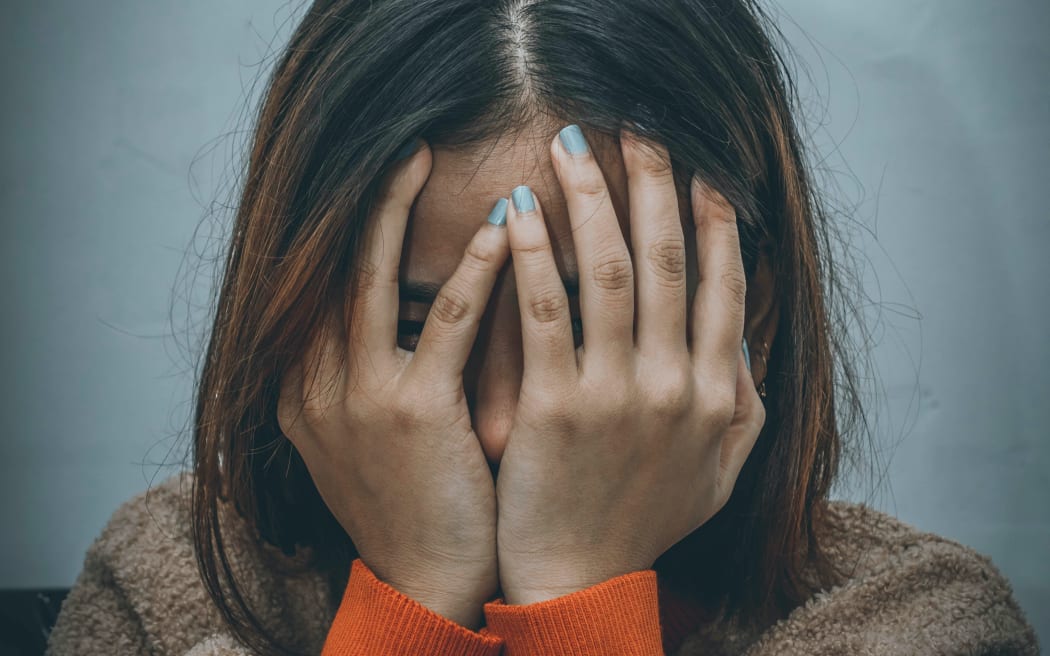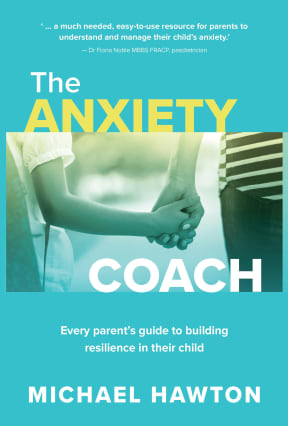Parents can guide their teenage children away from patterns of emotional overreaction, says psychologist Michael Hawton.
His new book The Anxiety Coach is a guide for helping young people manage their emotions and develop resilience.
"We need to give kids skills to overcome life's challenges," he tells Kathryn Ryan.

Photo: Dev Asangbam

bookcover Photo: Exisle Publishing
Michael Hawton is the founder of Parentshop - a resource hub for parents, educators and child family specialists.
Human brains haven't significantly changed in the last 25 years so today's high levels of adolescent anxiety seem to come from our environment, Hawton tells Kathryn Ryan.
Kids don't get as much sleep as they used to, and often not as much as they need. They're bombarded by information and don't get the "radical downtime" previous generations of children enjoyed.
They're also overusing important words like 'anxious', 'depressed' and 'traumatised' to describe everyday annoyances, he says.
Hawton's wife, who provides learning support at a New South Wales high school, says the first thing out of many teenager's mouths, however minor their challenge, is "I'm anxious".
This is problematic because the words we use to frame adverse or challenging experiences can really shape our experience, Hawton says.
"If you keep using inflammatory words and phrases to describe small events to yourself and other people, eventually that will have an effect – it will affect you in the long term because it becomes a pattern of behaviour."
Some parents find it tricky to put their own protective feelings aside when their child faces a problem, but it's important to do that.
Psychological overprotection – when parents quickly jump in to solve problems because it distresses them to see their child distressed – won't help that child become more resilient, he says.
If a child tells you that they're anxious, be supportive and compassionate and ask solution-based questions to help them think through their situation.
"We need to help kids start scaffolding alternative ways to think about the problem they might be facing. If parents can use those micro-moments… instead of helping the child avoid a problem… they can help the child to wrestle with the difficulties themselves.
"The anxiety coach is the parent. The parent is going to do certain things to equip their child to solve problems, reframe things and return to calm."
It can be hard to lock in a teenager for an informal counselling session, Hawton concedes, but research has shown that "chipping away" at the catastrophic thinking of a developing brain is effective in reducing anxiety over time.
"Is that a feeling or a fact?" is a good question to ask a young person, Hawton says.
"We've gotta get kids more accurate in the way they describe things to themselves and to other people – and that's gonna happen across thousands and thousands of conversations."
Where to get help:
Free call or text 1737 any time to speak to a trained counsellor, for any reason.
Lifeline: 0800 543 354 or text HELP to 4357
Suicide Crisis Helpline: 0508 828 865 / 0508 TAUTOKO (24/7). This is a service for people who may be thinking about suicide, or those who are concerned about family or friends.
Depression Helpline: 0800 111 757 (24/7) or text 4202
Samaritans: 0800 726 666 (24/7)
Youthline: 0800 376 633 (24/7) or free text 234 (8am-12am), or email talk@youthline.co.nz
What's Up: online chat (3pm-10pm) or 0800 WHATSUP / 0800 9428 787 helpline (12pm-10pm weekdays, 3pm-11pm weekends)
Kidsline (ages 5-18): 0800 543 754 (24/7)
Rural Support Trust Helpline: 0800 787 254
Healthline: 0800 611 116
Rainbow Youth: (09) 376 4155
If it is an emergency and you feel like you or someone else is at risk, call 111.

